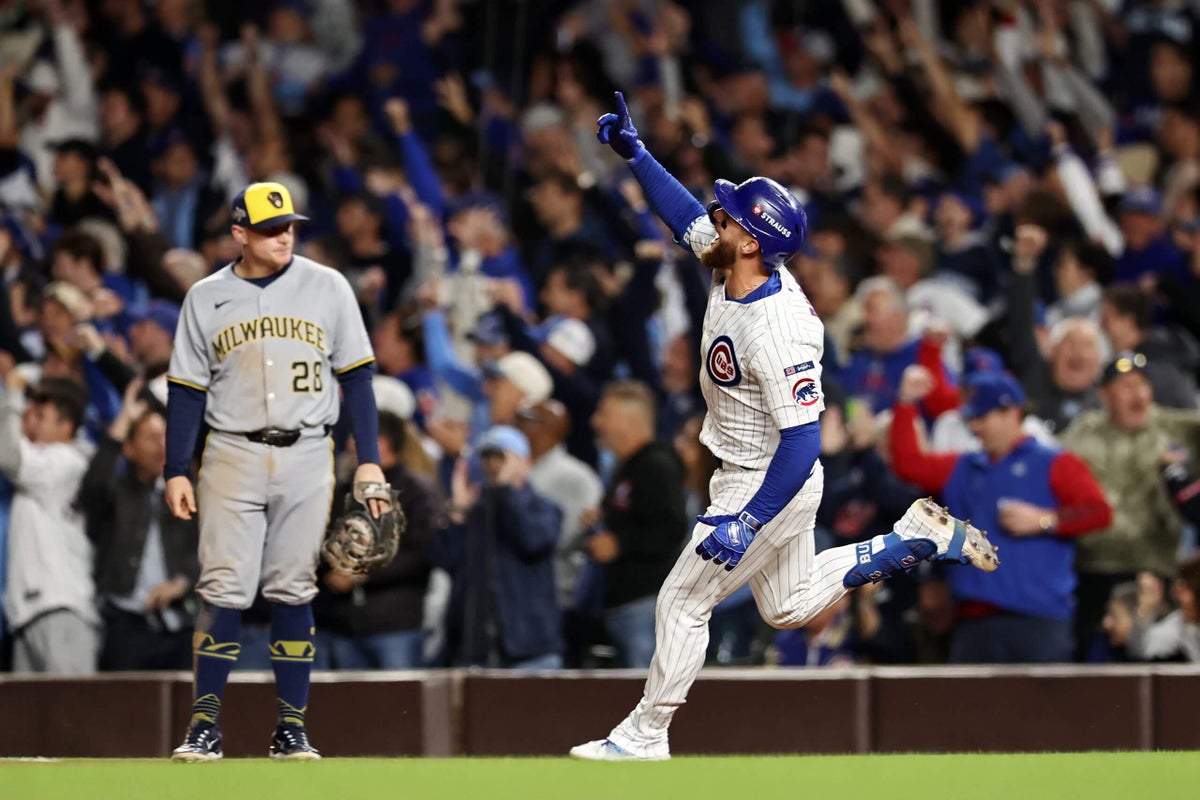For the modern manager, the traditional leadoff man has become a thing of the past. Speed isn’t always necessary. On-base percentage is king. But if, for some reason, that doesn’t work, the explanation becomes even simpler.
“Lineup construction is a little overrated in my opinion,” Cubs manager Craig Counsell recently said. “Just try to hit your best hitters as much as you can.”
When things started to go south with Ian Happ at the top of the lineup, Counsell leaned into this concept. With a righty on the mound, he was going to Michael Busch.
“He’s just a really good hitter and that’s the biggest reason that he’s there,” Counsell said. “Michael has been exceptional at kind of picking his spots — you’re the leadoff hitter once, and that first at-bat of the game is a different at-bat, and I think Michael has been exceptional at that at-bat.”
In the regular season, Busch had a .864 OPS with 16 home runs and 10 doubles when batting leadoff. Busch was seemingly comfortable in any spot in the lineup. But for some reason, when leading off a game or an inning, he seemed to thrive. Busch had a .998 OPS with five home runs in the regular season when starting a game at the top.
“They put me there and I thought, ‘Why change what I do?’ Busch said. “Just having a good at-bat, staying aggressive, trusting my eyes. From there, it’s just kind of one of those things where I just try to have my at-bat. Sometimes it goes well; sometimes it doesn’t.”
When things are going well, overthinking it or changing what you do is never good. In contrast, Busch’s talents may actually force the opposition to change how they think. At least that’s what Counsell believes.
“You pick your spots to attack on the first pitch and you make that pitcher have some doubt starting the game with the ability to hit a home run,” Counsell said. “A lot of times guys don’t amp it up on the first pitch, they don’t amp it up for the first hitter, and (he) makes that pitcher understand he has to do that or (think), ‘Should I do that?’”
In the playoffs, that thought process has been ramped up even further for opposing pitchers. In his first postseason experience, Busch has a 1.162 OPS with four home runs, the latter tops among all players.
Busch’s impact is so high that it is constantly on the opposition’s mind. Brewers manager Pat Murphy opened Game 2 of the series with lefty Aaron Ashby in part to try to force Counsell to make a decision at the top. Counsell put Justin Turner in with the idea that he’d quickly bring Busch in once Ashby left. But even one fewer plate appearance for Busch is a win in Murphy’s mind.
“One through nine, they’ve got a great lineup,” Murphy said. “One of the best, really. That’s how the team was built, and they’ve done a good job, and they’re still alive. Busch, in particular, he’s come into his own. This guy is — you’ve got to make pitches to him.”
Players like Busch and Kyle Schwarber were once thought of as out-of-the-box leadoff hitters. However, their ability to start a game with fireworks can set the tone for the game. And it motivates teammates.
“To be able to set a tone like that, I think that’s so huge,” Pete Crow-Armstrong said. “The confidence we have in sending Buschy up there any at-bat, it’s obviously very high. But the confidence that I have when Michael Busch leads off a ballgame or an inning is through the roof.”
In a lineup filled with talent, Busch has emerged as one of the best. He finished the season on a heater, ending the year with a 140 wRC+. That was good for ninth in all of baseball, ahead of other more heralded first basemen like Freddie Freeman, Vladimir Guerrero Jr, Matt Olson and Bryce Harper.
But the postseason creates a chance for stars to be born. It appears Busch has taken this opportunity and run with it.
“You can just tell by the way they manage the game, he’s become the guy in the lineup that everybody is thinking about,” Counsell said. “They’re doing their pitching around him, and that’s a credit to the player. It really is.”

